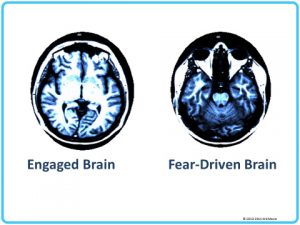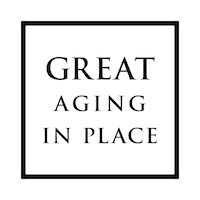The following article by Lisa Bixler originally appeared in Prime Women magazine.
“Gratitude is the healthiest of all human emotions.” – Zig Ziglar
Most of us learned about gratitude at a young age, in various forms. Saying a prayer before meals, being reminded to “count your blessings,” and sending thank you notes to relatives for birthday and Christmas gifts are a few that come to mind. We learned what we should do, but we didn’t really think about it much beyond that. Years later, Oprah stressed the transformative benefits of gratitude and many of us followed her lead, starting journals of our own.
The Benefits of Gratitude in Science
Today, there is no shortage of information on the internet telling us how choosing gratitude will make us happier and healthier, have better relationships, higher productivity at work, increased energy, and greater resiliency, just to name a few. I even came across one interesting website that summarizes the results of over 40 scientific studies on the subject and outlines 31 benefits “you didn’t know about.”
On an intellectual level, we all get it. But what happens when you’ve been deeply affected by traumatic circumstances? Whether it’s the health of a loved one, a toxic workplace, or a natural disaster, certain types of stress can make it difficult for even the most optimistic people to move forward after surviving in fight or flight mode for a period of time.
 According to acclaimed executive coach Eva Archer Smith, an expert in the field of transformation, “Your brain has enormous neuroplasticity, so you can rewire it to change. And it changes by actions, not thoughts.” She says that one of the fastest proven ways to move from the default setting of the ‘primitive’ or fear-based brain, which senses danger and releases the stress hormone, cortisol, to the pre-frontal cortex, which releases the feel-good hormone, oxytocin, is by practicing gratitude.
According to acclaimed executive coach Eva Archer Smith, an expert in the field of transformation, “Your brain has enormous neuroplasticity, so you can rewire it to change. And it changes by actions, not thoughts.” She says that one of the fastest proven ways to move from the default setting of the ‘primitive’ or fear-based brain, which senses danger and releases the stress hormone, cortisol, to the pre-frontal cortex, which releases the feel-good hormone, oxytocin, is by practicing gratitude.
Higher levels of oxytocin can reduce the body’s stress response, increase social interactions and enable people to seek support during difficult times. It also keeps the heart strong, protecting it from the effects of stress by helping the cells to regenerate. If the idea of re-learning gratitude is overwhelming, Smith recommends taking a step back and starting with curiosity, asking yourself, “How can I think about this situation differently?” Until my conversation with her I was not familiar with the link between curiosity and gratitude, but our discussion sparked my own curiosity on the subject so I dug a little deeper. I found a powerful short video on the subject by TED curator, Chris Anderson.
Then I discovered that this video is part of an amazing project by filmmaker Louis Schwartzberg, which explores the benefits of gratitude through a series of 15 film shorts, each illustrating a different behavior with a visible connection to the topic. Besides curiosity, the features include patience, forgiveness, purpose, courage, and generosity. Wow.
Living in Houston, in the past few months since Hurricane Harvey I’ve seen gratitude expressed in many of these forms. Everyone was impacted in some way, and it will be a while before the region fully recovers. Two things that I will always remember about this time are how much those who were more fortunate demonstrated gratitude by putting their own lives on hold for an extended period of time in order to help others who were not as lucky and how those who seemed to be the worst off amazingly showed the most gratitude of all.
Thousands of people who lived for weeks at the Red Cross shelter in the Convention Center were so appreciative of the smallest things, like the woman looking through organized piles of donated clothes to find something to wear to an upcoming job interview or the children who smiled at the options on the snack table and thanked the volunteers as they made their selections. No one cried or complained, including the employees who were tasked with continuously keeping all the restrooms clean. Believe it or not, they were spotless.
Among the conversations when checking in with people immediately after the storm, I heard things like, “Oh we’re fine. We only got 8 inches of water in our house.” Or, “We’re good. We only lost our cars.” These were circumstances that would typically cause people to unravel a bit, and for good reason. But when surrounded by so many others dealing with far worse situations, choosing gratitude enabled them to transition from fight or flight mode to resiliency.
One local rock star of resiliency and master of choosing gratitude is fashion designer Gayla Bentley, who lost nearly all of her personal belongings when the chest-deep flood waters destroyed her home. In order to gain closure and move forward, she channeled her curiosity and creativity and demonstrated just about every one of the 15 behaviors in those film shorts. The result? She threw a “fashion funeral” in her backyard to say goodbye to what was and start a fresh chapter. Her unique, uplifting story can be found here.
If we look around in our daily lives, we can find ways of intentionally choosing gratitude, regardless of the less than pleasant situations we may otherwise be experiencing. And when it’s difficult to immediately make the shift, going with one of the other connected behaviors will set us on the right path. To Gayla Bentley and the others who remind us how to translate an intellectual understanding of the subject into an inspirational experience that actually transforms our physical and emotional health, I would personally like to say, “I’m grateful for you.”

